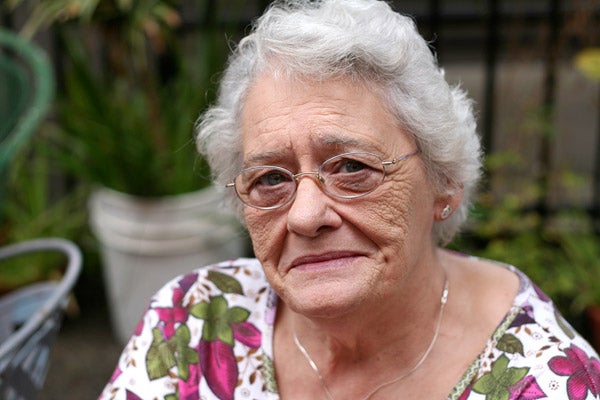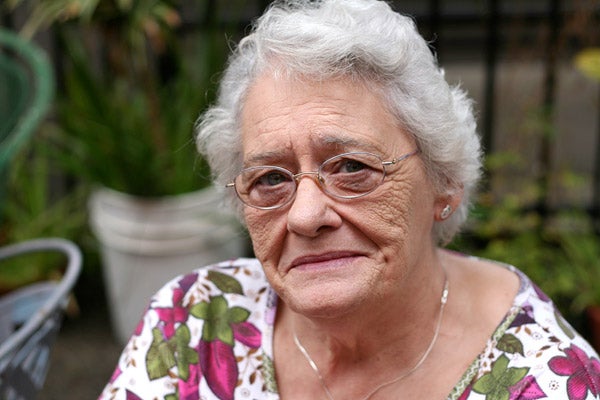SANDUSKY, OH—According to those close to Gertrude Wharton, the grandmother of nine declares 79 percent of everything she witnesses, experiences, or hears about from friends to be “a shame.”

“No matter what happens, her response is always, ’That’s a shame,’” said Wharton’s son Kevin, 46. “From the recent passing of her friend Lillian to the fact that her coupon for chicken bouillon cubes expired last week, I can’t have a conversation with her without being told something is a shame. Is this really how she sees the world now?”
Though Wharton, 83, has proclaimed things to be a shame in the past, her current usage of the word has been a growing cause for concern. Witnesses report that in the past 24 hours alone she has applied the term to a fallen tree, a graduation card to a grandchild that arrived late, and a news story about a golf course. Several times a day, loved ones say, she shakes her head and declares the event or statement that most recently came up in conversation to be “a shame,” and then a soulful, knowing look comes into her eyes, often accompanied by a sigh.
According to family members, Wharton’s use of the word “shame” has increased an estimated 60 percent in recent years.
“I remember her saying it when we were growing up,” granddaughter Danielle Treece said. “But it was usually when she was trying to make us feel better about something. It was kind of cute. Now she’s saying it about the lightbulb that burned out in the hallway. I’m like, ’Grandma, I’ll change it. It’s fine,’ but no matter what it is we’re talking about, she acts like she just found out Hitler invaded Poland or something.”
“It’s making me uneasy,” Treece said. “I know it’s only a matter of time before I do something that’s a shame.”
Other members of the family have attempted to decode the level of distress or disappointment Wharton is tryng to convey with the word. While most things are simply “a shame,” other, more intense degrees include “a real shame” (a rabbit that was eating her garden vegetables), “a crying shame” (the Iranian election), and, worst, “an awful shame” (her grandson failing algebra).
Now, even moments of pleasure are cut with an undercurrent of shame, such as during her daughter’s 49th birthday, when she said that a cake was so lovely it was a shame to have to cut it up.
“Sometimes, I’m not sure what she means at all,” Kevin Wharton said. “Who is supposed to feel shame? Is it me? It’s true that perhaps we didn’t eat every sandwich she prepared for us, but that’s can’t even really be called a bad thing, let alone a shame. And then she’ll say things like, ’Kids today. What a shame.’ And I have no idea what she’s talking about.”
“It’s a shame they behave a certain way?” he added. “That they exist? That’s such a broad statement. It’s actually a shame, if you think about it—oh, no, now she’s got me doing it.”
Among the other labels Wharton applies to things are “a pity” (9 percent of everything) and “a waste” (7 percent). The remaining 5 percent of things qualify as “oh, how nice.”
“The word has lost all meaning,” Kevin Wharton said. “Whether it’s raining, or sunny, or when the mail is late, or early, or her relatives can’t come to visit, or if they do visit and had to miss out on something else, or pretty much anything you can think of, it all comes down to one version or another of a shame.”
Some think the increased frequency of Wharton’s shame-assessments could be linked to her husband’s death by coronary thrombosis in 2007.
“Grandpa Bill was really something,” Treece said. “I’ll never forget the way he used to always get a gleam in his eye, slap his knee, and say, ’Ain’t that a hoot.’”







